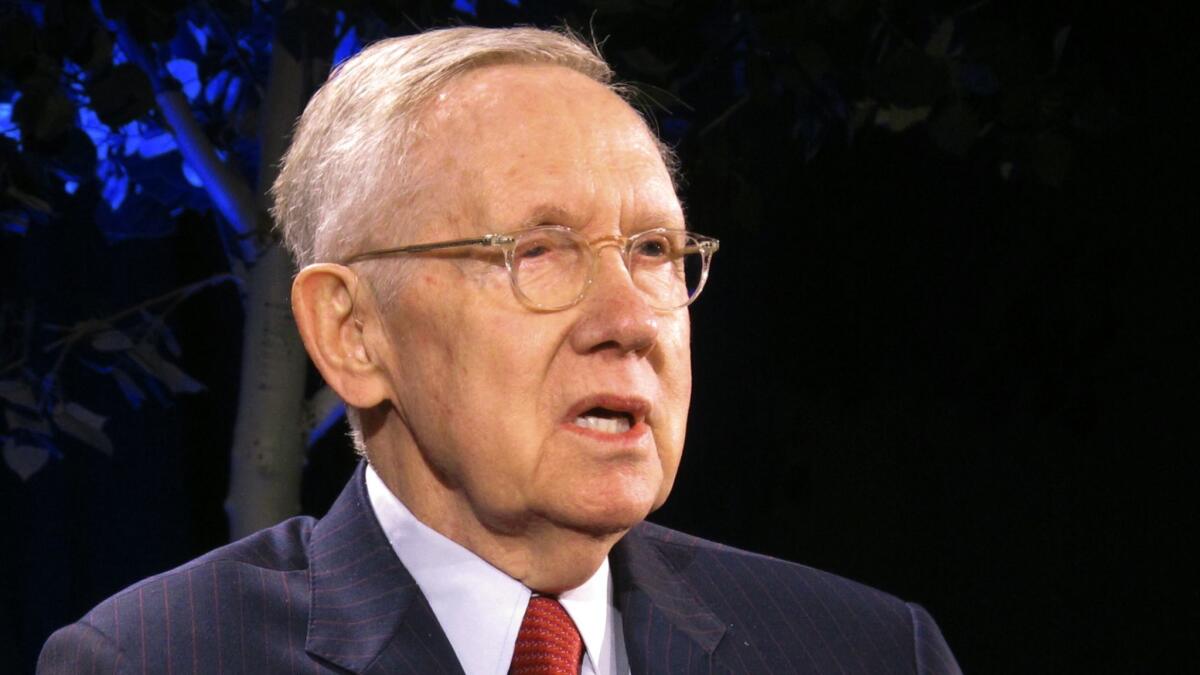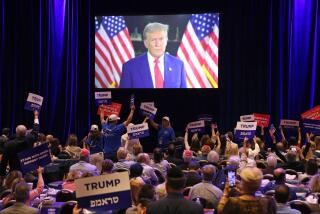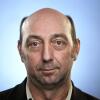Harry Reid leads anti-Semitism forum in Las Vegas amid fears of its rise in the U.S.

Harry Reid needed to do something.
A swastika poster appeared at a Bernie Sanders rally in Henderson, Nev. Then there were the swastikas carved in dorm rooms at the University of Nevada, Las Vegas. Beyond his home state was the march of white supremacists in Charlottesville, Va., and the mass shooting at a synagogue in Pittsburgh.
The 79-year-old Democrat — who served 30 years in the U.S. Senate, at one point as the majority leader — left office in 2017 after not seeking reelection but said he felt compelled to fight the rise of anti-Semitism.
On Thursday, he took an initial step, bringing in Deborah Lipstadt, who famously won a libel case against Holocaust denier David Irving in British courts in the late 1990s, and Jonathan Weisman, journalist and author of the book “(((Semitism))): Being Jewish in America in the Age of Trump.”
Reid said that, with the number of Holocaust survivors dwindling, he thought it was important to keep speaking out on anti-Semitism for younger generations to understand how it can take root and grow in society.
“It has raised its ugly head all across America,” Reid said, noting that he didn’t recall seeing it this fervent when he first was elected to the Senate in the 1980s.
His anxiety is justified, according to the Anti-Defamation League. Its most recent accounting of anti-Semitism nationwide showed that in 2017 there were 1,986 incidents — a 57% increase over the previous year and the second highest total since it began collecting the data in 1979.
The ADL has yet to release a tally for 2018, which saw the deadliest anti-Semitic attack in U.S. history. In October at the Tree of Life Synagogue in Pittsburgh, 11 worshipers were gunned down during Sabbath morning services, while seven more were injured.
In Pittsburgh, two ‘gentle souls’ — victims of the synagogue shooting — are laid to rest »
The suspect arrested in the shooting had posted anti-Semitic rants online. Lipstadt said future attacks should not be looked upon as “lone wolf” incidents, but the acts of those “inspired” by what they see and read about in online forums and comments on social media platforms.
“They may not know each other and they may not be getting an order from central headquarters, but they’re all reading the same stuff,” Lipstadt said. “They’re all citing one another.”
Weisman condemned the far right for using the term “political correctness” to excuse hate speech.
He blamed President Trump as contributing to a decline in the level of discourse in American society to the point that rudeness has become acceptable — providing some cover to anti-Semites and racists.
Trump had just been in Las Vegas five days earlier speaking to the Republican Jewish Coalition and meeting privately with one of his biggest donors and supporters, Las Vegas Sands Corp. Chairman and Chief Executive Sheldon Adelson.
The president focused much of his attention on Israel and touted his moving the U.S. Embassy from Tel Aviv to Jerusalem last year. He also highlighted a police officer’s heroic attempts to save Jews during the Tree of Life mass shooting and accused Democrats of having “allowed the terrible scourge of anti-Semitism to take root in their party and in their country.”
The panelists said they believe that anti-Semitism indeed has a toehold within the far left of the Democratic Party.
Both Weisman and Lipstadt noted the struggle the party has had over comments made by Rep. Ilhan Omar (D-Minn.), a Muslim and first-generation American whose election was embraced by fellow Democrats as a rebuke of anti-immigrant rhetoric and an example of the party’s welcoming “big tent.”
But she has stirred controversy with critiques of U.S. policy toward Israel that used language widely interpreted as anti-Semitic.
Small desert town will remember Harry Reid even after he moves on »
Reid didn’t say what his next step was in the fight against anti-Semitism, but he said he hoped people would fight hate speech whenever they heard it — whether it was at ballgames, concerts or even family gatherings.
Lipstadt agreed.
“When you hear something, say something,” she said. “Not to change the minds of the people who are saying things — in most cases, that’s like trying to push a boulder up a mountain — but to telegraph to the people at the table … that this is not tolerated.”
More to Read
Sign up for Essential California
The most important California stories and recommendations in your inbox every morning.
You may occasionally receive promotional content from the Los Angeles Times.











